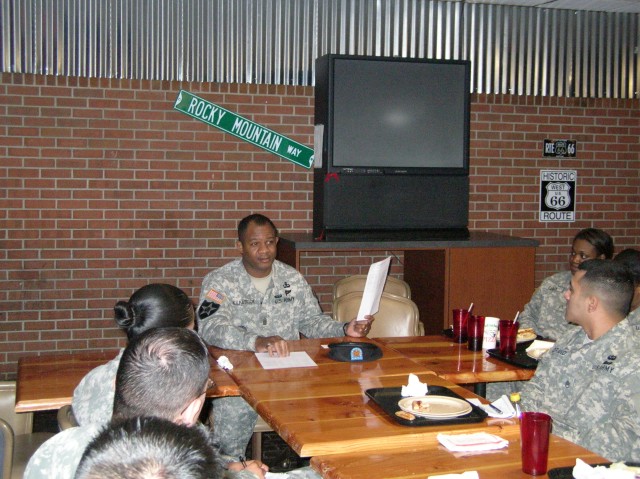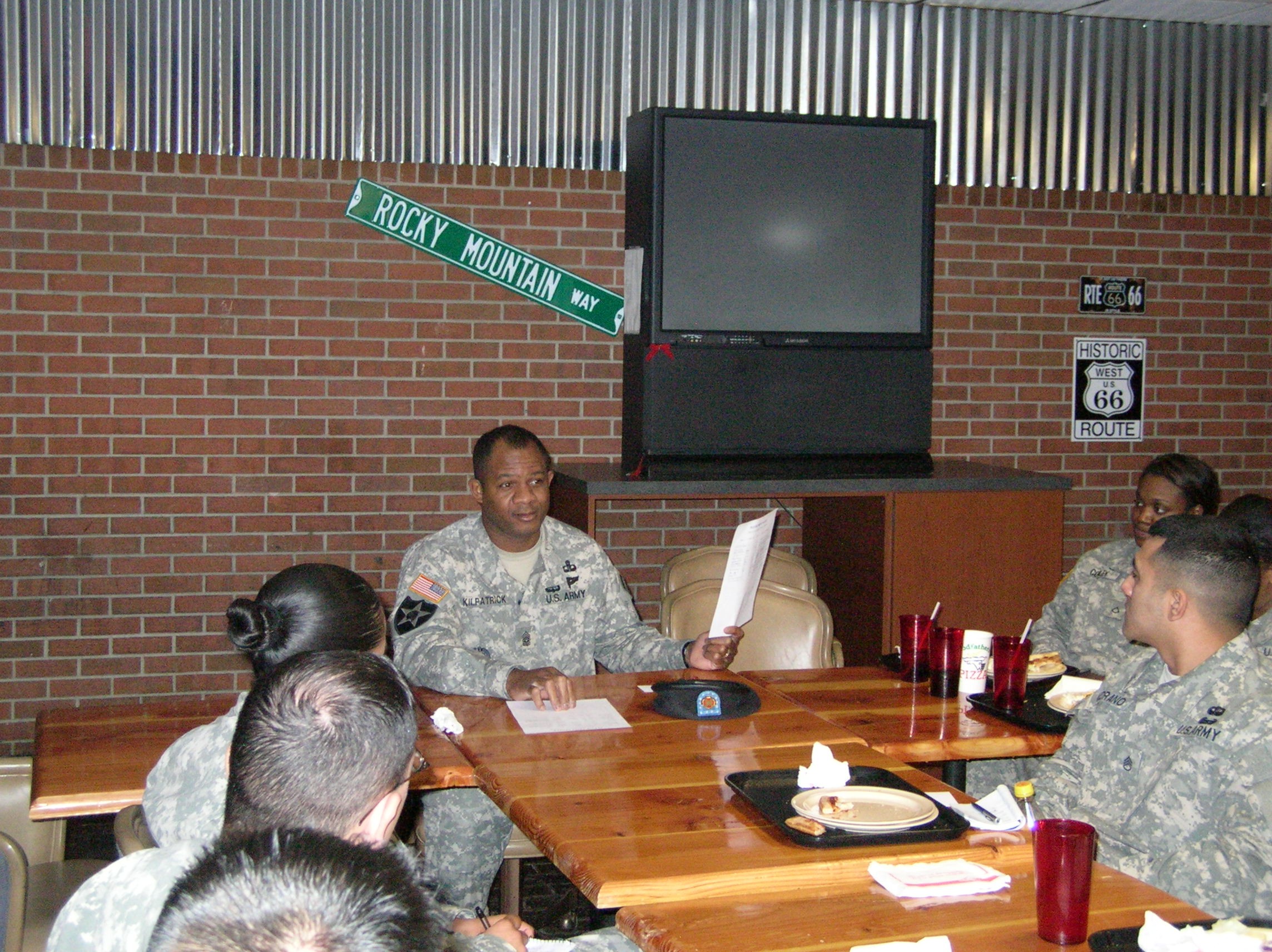Garrison Command Sergeant Major James Kilpatrick is making himself known to people on post. He frequently stops by offices where people are working late. When he's on leave, he's in touch via BlackBerry, and still occasionally stops by offices.
He views his job as garrison command sergeant major as an "opportunity and a privilege."
"My job is to do my best to support Soldiers and Families - to help make this (post) the best hometown in the Army - to make Soldiers say 'I want to come back to Fort Carson.'"
Speaking of the civilians who comprise the vast majority of garrison personnel, Kilpatrick refers to them as the "out of uniform Soldiers."
"I've learned to appreciate the people behind the scenes that I took for granted" he said.
"(Since taking this position) I have a better appreciation for the people in garrison - the Soldiers, Families and civilians."
Garrison Commander Col. Eugene Smith considers the garrison command sergeant major his "advance scout" at Fort Carson, on Soldier and Family issues. "He helps me do my job, helps me stay in tune to issues and problems in the neighborhoods, housing issues and families who might need assistance. He's also in communication with brigade command sergeants major.
"Typically," Smith said, "command sergeants major deal with Soldiers in a brigade or line unit. But the garrison command sergeant major deals with Fort Carson, Soldier and Family issues. He mentors any Soldiers assigned to garrison."
When Kilpatrick entered the Army almost 25 years ago, he didn't plan a career. His father was a carpenter and his grandfather built houses, but he wanted something different for his own life. He'd been in Junior ROTC in high school and it helped him; gave him structure.
"I didn't know how long I'd stay," Kilpatrick said, because he didn't have a deep interest in the military.
But when he was about to get out of the Army after three years, a significant thing happened. "I had one conversation with Sergeant. Major Beach. He asked me 'What are you going to do with your life''"
After that conversation Kilpatrick began to question himself. "What did I do (during his three years in the Army) that made me better' I didn't do anything positive - didn't go to college or make investments. Do I get out, look for a job'
"I decided to re-enlist. Right away I made goals for myself and started my higher education with the GI Bill.
"I became a more focused Soldier, reached a new maturity."
Kilpatrick went to Ranger School during his second enlistment and went on to serve in numerous leadership positions. He now has an associate degree, a bachelor's degree and a master's degree.
He served three tours of combat in support of Operation Desert Shield/Storm and Operation Iraqi Freedom III-IV and 06-08.
He came to Fort Carson in September 2005 when the 2nd Infantry Division was deployed from Iraq to Fort Carson, rather than returning to its previous home base at Camp Howze, Korea.
He served as the Special Troops Battalion command sergeant major in the 4th Brigade Combat Team, 4th Infantry Division, before being selected as command sergeant major of U.S. Army Garrison at Fort Carson.
"This is a great installation; a great post to serve." Kilpatrick said.
Kilpatrick is primary advisor for the Better Opportunities for Single Soldiers council. He's also the garrison commander's representative to nonprofits and organizations on post and is "often the 'go-to-guy' when people or organizations want to do something on post," Smith said. "He's active with School District 8 and is my designated representative to schools here on post."
"This job allows me to communicate with the community and tell the Soldier's story," Kilpatrick said. "The civilian community here loves us, appreciates us. (Citizens) can honor Soldiers' service by reaching out and standing up for Soldiers."
"That's my pay raise," Kilpatrick said.


Social Sharing